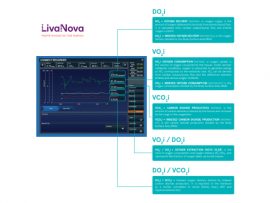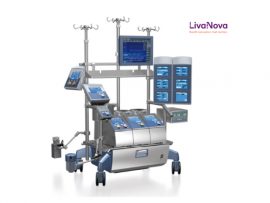Abstract Objectives The use of del Nido in adult cardiac surgery is rising in popularity. The objective of this large multicenter study was to evaluate the use and associated outcomes of..
Read MoreAbstract INTRODUCTION: Enhanced recovery after cardiac surgery in selected low-risk patients, has the potential to improve outcomes and reduce the burden of healthcare costs. Anesthesia-related challenges play a major role..
Read MoreAbstract Background The incidence and prognostic impact of major bleeding (MB) after percutaneous coronary intervention (PCI) and coronary artery bypass grafting (CABG) for left main coronary artery disease (LMCAD) are..
Read MoreAbstract Background: A critical incident is described as any unplanned event which causes, or has the potential to cause, injury to a patient. Critical incident debriefing is a team discussion..
Read MoreAbstract Background: Decreased cerebral oximetry (rSO2) in cardiac surgery is associated with postoperative delirium (POD). However, interventions optimizing intraoperative rSO2 are inconclusive. Methods: In this prospective observational cohort study, the..
Read MoreAbstract Valve-sparing root replacement (VSRR) has been performed for more than 30 years, both electively and in emergencies, with excellent long-term clinical outcomes. There are 2 main types of VSRR:..
Read MoreAbstract Objective: This study evaluated the incidence, causes, and predictors of intraoperative conversion from off-pump coronary artery bypass grafting (OPCAB) to on-pump coronary artery bypass grafting (ONCAB), identifying risk factors..
Read MoreAbstract Background and Objective Patients undergoing cardiac surgery consume more than 50% of blood transfusions, and such transfusions have been associated with increased morbidity and mortality. Evidence in blood-saving techniques..
Read MoreAbstract In the issue of the journal, Claessens et al. [] present a large case series of non-robotic totally endoscopic coronary artery bypass (TECAB) surgery. They summarize the outcomes of 1500 patients..
Read MoreAbstract Background and Objectives Transfusions are common, but their use is decreasing in some countries as a result of increased risk awareness and the implementation of patient blood management (PBM),..
Read MoreAbstract The currently available point-of-care hemostasis tests are burdened by criticisms concerning the use of different activators and inhibitors and the lack of dynamic flow. These operating conditions may constitute..
Read MoreAbstract Background: In Canada, the health care system has been estimated to generate 33 million metric tons of greenhouse gas emissions annually. Health care systems, specifically operating rooms (ORs), are..
Read MoreAbstract Heart transplantation (HT) is the gold standard treatment of end-stage heart disease. Waitlist mortality remains high due to a shortage of available donor organs. Donation after circulatory death (DCD)..
Read MoreAbstract Purpose: Whether skin disinfection of the surgical site using chlorhexidine‑alcohol is superior to povidone‑iodine‑alcohol in reducing reoperation and surgical site infection rates after major cardiac surgery remains unclear. ..
Read MoreAs the field of organ transplantation continues to evolve, the use of Donation after Circulatory Death (DCD) donors has emerged as a critical method to expand the donor pool. However,..
Read MoreAbstract During retrograde autologous priming (RAP), some patients develop hypotension and hemodynamic instability, which impedes the procedure. This study aimed to demonstrate the effects of RAP on transfusion requirements and..
Read MoreAbstract Background Guideline-based care of patients requiring extracorporeal membranous oxygenation, a form of life support for patients with refractory respiratory and/or cardiac failure, requires a multidisciplinary approach, yet a detailed..
Read MoreAbstract Background: Extracorporeal membrane oxygenation (ECMO) is a vital mechanical circulatory support used with increasing frequency in complex congenital cardiac surgeries. This study evaluated the outcomes of a protocol-based venoarterial..
Read MoreAbstract The use of temporary mechanical circulatory support (tMCS) in cardiogenic shock patients has increased during the last decades with most management strategies relying on observational studies and expert opinion,..
Read MoreAbstract Objectives: To test feasibility of a randomized controlled trial (RCT) with an endpoint of time at goal anticoagulation in children on extracorporeal membrane oxygenation (ECMO) randomized to receive bivalirudin..
Read MoreAbstract Objective We aimed to characterize chronologic trends of gender composition of the editorial boards of major cardiothoracic surgery journals in the current era. Methods A cross-sectional analysis was performed..
Read MoreAbstract Extracorporeal cardiopulmonary resuscitation (ECPR) describes the use of venoarterial extracorporeal membrane oxygenation (VA-ECMO) to restore blood circulation in patients during refractory cardiac arrest. So far, ECPR is not the..
Read MoreAbstract Extracorporeal membrane oxygenation (ECMO) provides temporary cardiorespiratory support for neonatal, pediatric, and adult patients when traditional management has failed. This lifesaving therapy has intrinsic risks, including the development of..
Read MoreAbstract Anticoagulation is an essential component of optimal extracorporeal membrane oxygenation (ECMO) management. Unfractionated heparin is still the anticoagulant of choice in most centers due to longstanding familiarity with the..
Read MoreAbstract The process of placing a patient on venoarterial extracorporeal membrane oxygenation (VA-ECMO) is complex and requires the activation and coordination of numerous personnel from a variety of disciplines to..
Read MoreAbstract Background Retrohepatic inferior vena cava (IVC) injuries remain among the most lethal and serious liver injuries. Gauze packing is currently the first choice for IVC injuries; however, laparotomy itself poses..
Read MoreAbstract Infants with congenital diaphragmatic hernia (CDH) benefit from comprehensive multidisciplinary teams that have experience in caring for the unique and complex issues associated with CDH. Despite prenatal referral to..
Read MoreAbstract This 5 year retrospective study presents the clinical experience with preprimed extracorporeal membrane oxygenation (ECMO) circuits used in a Single Hub Center Hospital, focusing on sterility, functionality, and safety...
Read MoreAbstract Purpose Venoarterial extracorporeal membrane oxygenation (VA ECMO) is used in patients with refractory cardiac or cardio-pulmonary failure. Native ventricular output interacts with VA ECMO flow and may hinder sufficient..
Read MoreAbstract This referral center prospective inception cohort study included 84 consecutive children having extracorporeal membrane oxygenation (ECMO) for noncardiac illness indications at the age of less than 6 years from..
Read More




















